Isaiah Washington & Malinda Williams Talk ‘The Undershepherd’ :: “I welcome the backlash, I’ll brush my teeth with it”
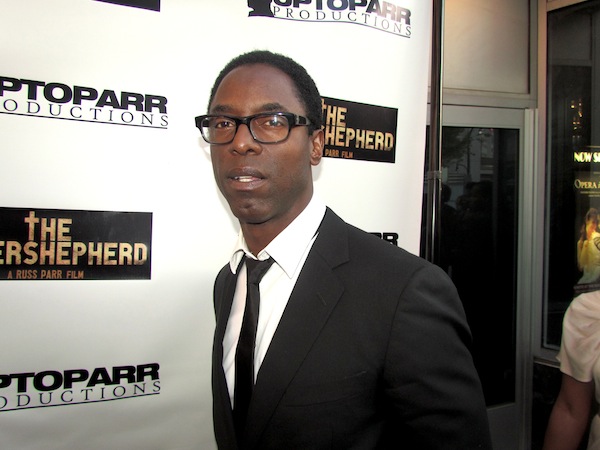
This week, “The Undershepherd,” produced by Russ Parr, made it’s debut in Silver Spring, Maryland. The film, which follows the story of two Baptist ministers, stars Isaiah Washington, Robinne Lee, Bill Cobbs, Malinda Williams, Clifton Powell, Elise Neal, Lamman Rucker and Vanessa Bell Calloway. The story line focuses on LC (played by Isaiah Washington), who is so greedy for power, that he ultimately makes highly questionable personal, spiritual and business moves within his position at church. As a result, his supportive wife, Cassandra (played by Malinda Williams) suffers from abuse and an eating disorder, under his wrath. During the movie premier, we spoke with both Isaiah and Malinda about the plot of the film, what drew them to the script, and potential back-lash from the ‘black church’. Peep a few excerpts:
Isaiah Washington on the films plot:
“I play a minister, LC (or Lawrence Case) and Lamman Rucker is playing my good friend, Roland. We start off as men in arms sticking together to become pastors. But the leadership, played by Bill Cobbs and Louis Gossett Jr., they’re not letting go of the old regime and the power. So Roland leaves and says, ‘I don’t want to be here any longer, waiting to be the pastor. I want to be the undershepherd. I want to be the leader of my own church.’ So you see one leave, then you see my character stay. You see the juxtaposition of one who leads one way and the other leads another way. It starts off where you don’t know who’s good and who’s bad, then suddenly we’re in this intense world. It grabs you and it shakes you up.”
Malinda Williams on what attracted her to the script:
“That’s one of the things about the script that attracted me. There were so many surprises. My gauge, for when I’m choosing if I’m going to enjoy doing a film, is ‘can I put that script down’? And when I was reading that script it was the same as when I’m reading a fantastic book; the pages just continue to turn. And then finally I find myself at the end of the script, and I was like, ‘OK, I want to see more.’ The other thing is that these characters are not typical of what we normally see from African American actors; they’re very well-rounded, they’re very in-depth characters; they go places where we don’t normally get to see ourselves go on film, but we know those places exist in our real lives.”
Isaiah Washington on how he feels about possible backlash from the black church community:
“I did it because I was afraid of it. That’s the kind of actor that I am. I’ve always been attracted to pieces that scared the daylights out of me, because I want to be able to disappear in that world, and see if I can come out in the end still whole, as an artist. There’s going to be some backlash, but hopefully some good backlash. Reading this script, I felt like [how I felt when I got the script for] “Love Jones.” I got to Page 13 of “Love Jones” and I said, ‘I just haven’t seen these characters before. I will play the dirt on the floor to be a part of this project.’ And that’s how I felt about this story. And when I found out who else was in the movie, I said, ‘Ok, now I can go.’ Because there’s nothing more frustrating than being in a project and you’re the only strong actor. You cannot carry a film by yourself… So I welcome the backlash, I’ll brush my teeth with it. It’s the truth. And if it’s the truth, wear it. My mom always told me that the guiltiest dog yelps the loudest when you throw a rock. I did this movie to out those who need to be held accountable, including myself. We have to own up to our mistakes.”
Malinda Williams on playing a character who suffers from an eating disorder:
“I definitely had to do research because I knew very little about it, from a personal standpoint. I have a very good friend who wrote the book, “Not All Black Girls Know How To Eat,” and she’s been bulimic for years. One of the things that I realized is that we typically think that it’s a Caucasian issue, and it is not. It’s everybody’s issue, although in the African American community we don’t talk about it because no one wants to start the dialogue. I thought if it’s here and it’s a platform, I will take it on as my responsibility to begin the dialogue that nobody seems to know how to talk about. I think Cassandra‘s (my character) bulimia is a direct result of her being abused and trying to figure out how to please her husband. She’s the first lady of this church so she has to hold up this appearance. Here are two people who wanted to be leaders. They didn’t even realize that maybe they can’t handle that. As a result, they crumbled.”
Isaiah Washington on how the movie compares to real life:
“Image management is very intense. Once you set yourself up as the “it” couple, it’s a lot of pressure. They’re holding up the standard but they’re crumbling inside. It’s what really going on behind closed doors. It’s interesting to look at the character one minute being not righteous, and then in the next scene he’s at the pulpit leading people. It begs the question: ‘how many times have we been duped by leaders [in real life]?'”
Watch the trailer:
[youtube width=”590″ height=”415″]http://www.youtube.com/watch?v=DG371OgHGb0&feature=youtu.be[/youtube]
Here’s the full interview:
[youtube width=”590″ height=”415″]http://www.youtube.com/watch?v=lw6dqFO9IF4&feature=youtu.be[/youtube]


 Previous Article
Previous Article Next Article
Next Article![[Photos] LHHA’s Stevie J & Joseline Hernandez Have Strip Club Date Night](https://thejasminebrand.com/wp-content/uploads/2012/09/lhha-stevie-j-mimi-faust-diamonds-atl-b-the-jasmine-brand1.jpg) [Photos] LHHA’s Stevie J & Joseline Hernandez Have Strip Club Date Night
[Photos] LHHA’s Stevie J & Joseline Hernandez Have Strip Club Date Night ![[WATCH] RaVaughn Performs ‘Best Friend’ at ‘TOAST to Urban Entertainment Executives’](https://thejasminebrand.com/wp-content/uploads/2014/03/Screen-shot-2014-03-28-at-9.05.29-AM.png) [WATCH] RaVaughn Performs ‘Best Friend’ at ‘TOAST to Urban Entertainment Executives’
[WATCH] RaVaughn Performs ‘Best Friend’ at ‘TOAST to Urban Entertainment Executives’ ![Saint West Hugs-It-Out w/ Infant Baby Sister Chicago [Photo]](https://thejasminebrand.com/wp-content/uploads/2018/05/Screen-Shot-2018-05-22-at-11.08.23-PM.png) Saint West Hugs-It-Out w/ Infant Baby Sister Chicago [Photo]
Saint West Hugs-It-Out w/ Infant Baby Sister Chicago [Photo] 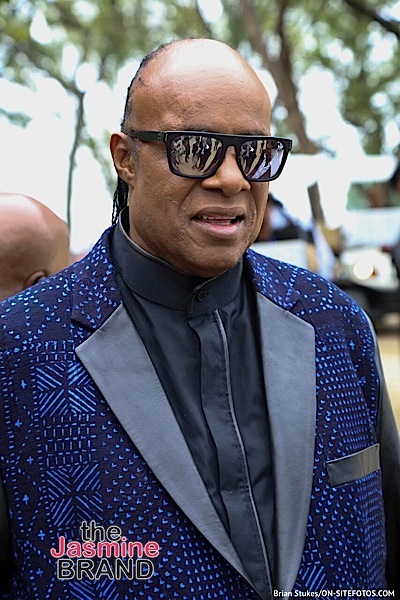 (EXCLUSIVE) Stevie Wonder Reaches Settlement In $7 Mill Battle Over Royalties
(EXCLUSIVE) Stevie Wonder Reaches Settlement In $7 Mill Battle Over Royalties 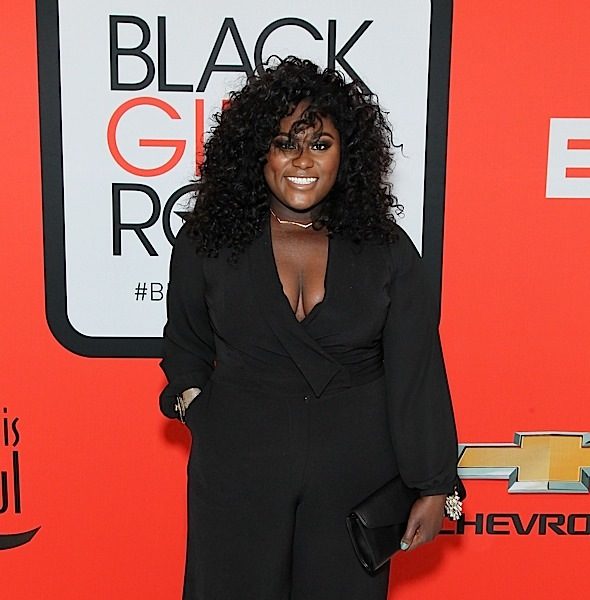 Danielle Brooks On Tony Nomination, Oprah’s Reaction To Sofia & Being On #TeamNoSleep
Danielle Brooks On Tony Nomination, Oprah’s Reaction To Sofia & Being On #TeamNoSleep 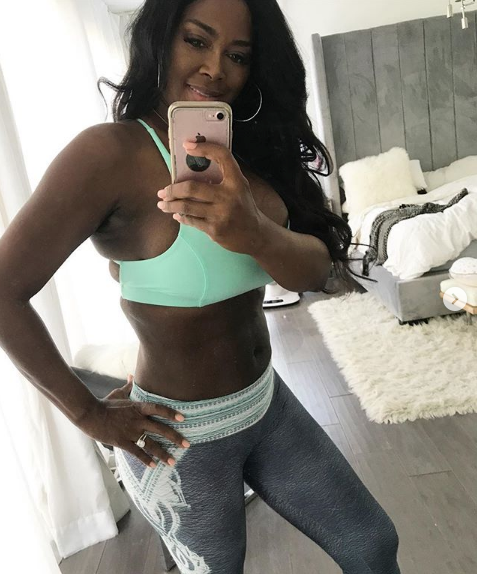 Kenya Moore Shows Off Her 47-Year-Old Snap Back Body: I Was Cut Twice During My C-Section, But I Made It!
Kenya Moore Shows Off Her 47-Year-Old Snap Back Body: I Was Cut Twice During My C-Section, But I Made It! 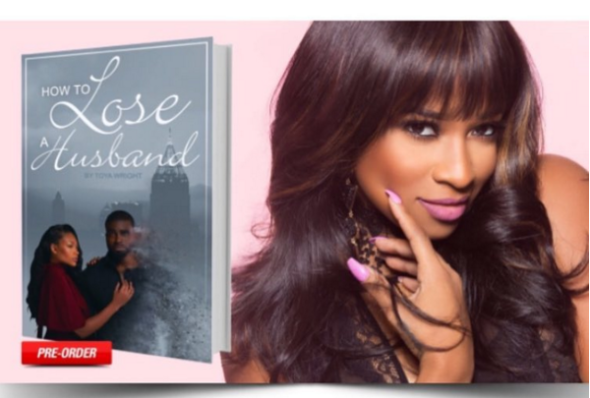 Toya Wright Releases ‘How To Lose A Husband’ Book Cover
Toya Wright Releases ‘How To Lose A Husband’ Book Cover 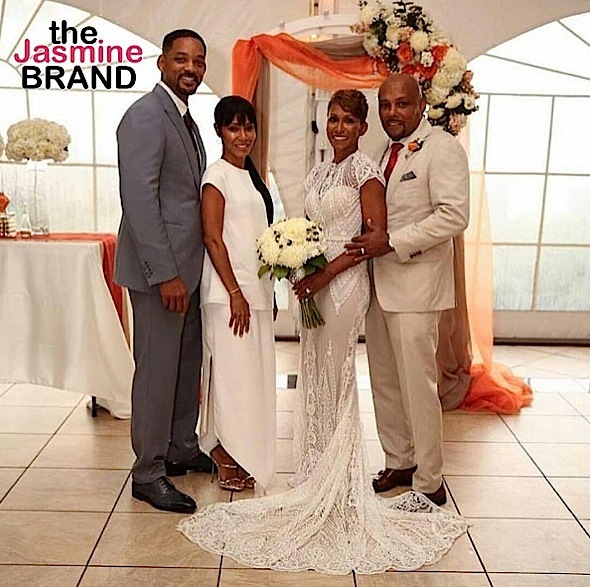 Jada Pinkett-Smith’s Mom Gets Hitched + Kelis, Bobby Brown & Joseline Hernandez Film ‘Hip Hop Squares’
Jada Pinkett-Smith’s Mom Gets Hitched + Kelis, Bobby Brown & Joseline Hernandez Film ‘Hip Hop Squares’